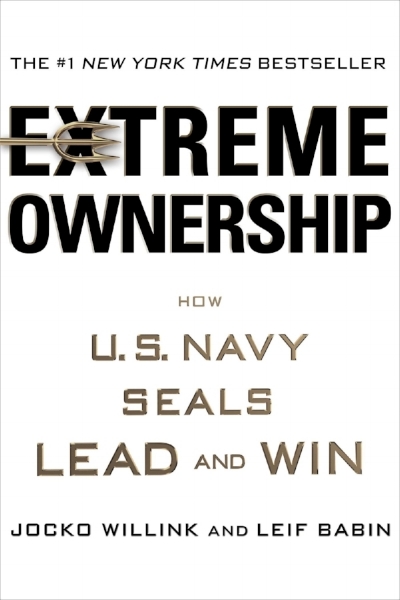Reading actual books is one of the habits found among the successful. Because reading and thinking go hand in hand.
Reading is key to becoming the very best version of yourself. It fills your mind and shapes your character like nothing else can.
Too many sit on the couch, and binge on Netflix, rather than turn off the glass box and get after it instead.
“The man who does not read good books,” Mark Twain said, “has no advantage over the man who cannot read them.”
I don’t want these words to characterize my life and I know you don’t either. For that reason, I’d love nothing more than to share the books that impacted me most this year with you here.
What follows are those books that challenged my mind, and encouraged my heart most. Books that helped me grow, learn and develop more and more into the man I’d like to be.
Extreme Ownership by Jocko Wilink and Leif Babin - It’s easy to say a book changed your life. You hear it all the time and may have even uttered it once or twice yourself. It is almost never the truth, but when that rare occasion comes it is worth taking note. I did that by sharing 21 Things I Learned From Reading Extreme Ownership earlier this year.
Chasing Excellence by Ben Bergeron - “The mindset of a champion,” Bergeron says, “is not some innate character trait that you have or don’t have based on DNA, fate or sheer dumb luck.” This book is about building character and embracing the process that’ll get you to the top. It is an approach you can deploy in every area of your life. One that will transform you if you let it.
Steal Like An Artist by Austin Kleon - “Art,” Pablo Picasso said, “is theft.” These words form the theses for Austin Kleon’s classic flip book on the creative’s journey. Everything the artist creates is a mash-up of everything they’ve experienced. In short, “there is nothing new under the sun.” This small book is about answering the questions every creative asks themselves. In finding a path forward you'll soon realize you have all the permission you need to do great things.
Jesus’ Sermon on the Mount and His Confrontation with the World by D.A. Carson - Our community group is walking through the Gospel of Matthew. We are taking our time and working through the text a verse at a time. The chief aim is to move beyond “quiet times” and have God’s Word change us. D.A. Carson’s work on Matthew 5-10 has been a tremendous help in digging deeper.
The Story of Reality by Greg Koukl - Every worldview is an attempt to make sense of the world. Yet, not every worldview deals with the way the world actually is. In The Story of Reality, Greg Koukl sets forth how Christianity answers fundamental questions about life, death, evil and why we are here. He provides a concise and winsome encapsulation of the Christian worldview. One that I trust you'll find a helpful and compelling companion on your journey to find and know the truth.
Spiritual Disciplines for the Christian Life by Donald Whitney - “Ours is an undisciplined age.” V. Raymond Edman said, “The old disciplines are breaking down…Above all, the discipline of divine grace is derided as legalism or is entirely unknown to a generation that is largely illiterate in the Scriptures. We need the rugged strength of Christian character that can come only from discipline.” Penned atop page one of Donald Whitney’s modern classic are the above words. They serve as far more than a primer to the Spiritual Disciplines, but a call to modern man. A call to something bigger, deeper, and greater. A call away from the entangling enticements of our day and back to the life and character that are only achieved through discipline.
Honorable Mention
The Way of the Writer by Charles Johnson
Church History in Plain Language by Bruce Shelley
Romans 1-7 For You and Romans 8-16 For You by Timothy Keller



